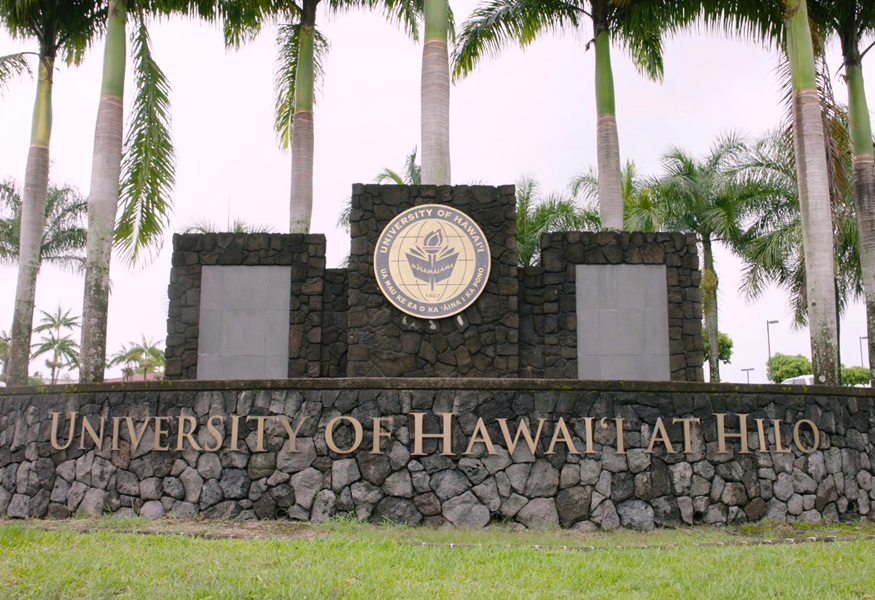PI-CASC CONSORTIUM:
UNIVERSITY OF HAWAIʻI AT HILO

Community-driven, multicultural, and comprehensive, the University of Hawaiʻi at Hilo (UH Hilo), the second largest institution of the University of Hawaiʻi System, is located on Hawaiʻi Island and serves over 3,500 students from Hawaiʻi, the Pacific Islands, the continental US, and many other nations. With a focus on excellence in undergraduate and graduate education, UH Hilo offers programs and degree pathways grounded in the unique local ecological and cultural diversity found in communities on Hawaiʻi Island and across the Pacific. In 2020 US News and World Report ranked UH Hilo the most ethnically diverse campus among national universities. UH Hilo faculty guide wide-ranging, place-based research opportunities that enhance student engagement in topical areas including heritage management, indigenous languages and cultures, marine science, tropical conservation biology and environmental sciences. Federal grants have helped build strong research laboratories in genetics, analytical chemistry, geospatial technologies, and a new data science program, which all support high quality teaching faculty engaged in research.
Partnerships
Collaborations are vital to the vibrant research and educational programs at UH Hilo, uniting researchers, natural and cultural resource managers, and educators. Such partnerships include those through the UH Hilo Hawaiʻi Cooperative Studies Unit with the USGS Pacific Islands Ecosystems Research Center (PIERC), the US Fish & Wildlife Service, the USGS Cooperative Fishery Research Unit, and researcher participation in the Hawaiʻi-Pacific Islands Cooperative Ecosystems Studies Unit (HPICESU) with several DOI agencies. Successful partnerships and funding efforts have led to the development of degree and career development programs that provide hands-on experience for undergraduate and graduate students closely tied to community needs including UH Hilo’s conservation-related graduate program, the Tropical Conservation Biology and Environmental Science (TCBES); the statewide Pacific Internship Programs for Exploring Science (PIPES), which provides pathways into conservation studies and careers; and the NSF Louis Stokes Alliances for Minority Participation (LSAMP) Islands of Opportunity Alliance in partnership with community colleges across the Pacific to provide island students support to explore research questions in the Pacific region.
Central to PI-CASC efforts, the UH Hilo consortium staff, in partnership with collaborators, have identified and engaged long-standing stakeholder networks on Hawaiʻi Island and have directly connected these networks with UH Hilo faculty and students in collaborative climate adaptation research through the Manager Climate Corps (MCC) program. Learn more about this manager-driven research program at the MCC program page.
CONSORTIUM
QUICK LINKS
CONTACTS
Dr. Jim Beets, University Consortium Lead
beets@hawaii.edu
(808) 932-7506
Scott Laursen, Program Specialist
slaursen@hawaii.edu

